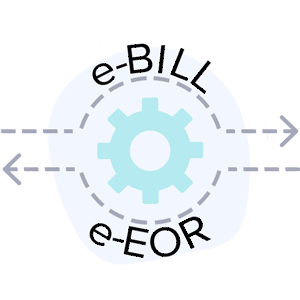Is ESIS Gaming California's Work Comp System?

In this latest installment of the IBR Hall of Shame, we chronicle the never-ending payment torture inflicted on a provider who “wins” an Independent Bill Review (IBR). This is the first in a two part series -- the second reveals the gory specifics. When reading these articles, we want you to ask yourself: Is ESIS gaming the workers’ comp payment system? Is ESIS using California’s lack of rules (for claims administrators) to deny payment? Is ESIS betting that providers won’t be able to adhere to California’s many, many strict appeal rules (for providers)?
ESIS incorrectly denied reimbursement for two separate bills submitted by a single provider. For each bill, after the provider paid for and submitted an IBR to dispute the incorrect denial, ESIS preemptively and correctly reimbursed the provider. Perversely, for each bill, ESIS did not wait for the IBR decision. Instead, once the provider filed the IBR with Maximus, ESIS simply paid the provider the correct reimbursement for each bill.
ABM Industries, Inc. is a self-insured California employer that uses ESIS as its Third Party Administrator (TPA). The injured worker was employed by ABM Industries, Inc. (NYSE: ABM), which provides facility services including janitorial, electrical & lighting, HVAC & mechanical, and landscaping.
For two separate evaluations of an ABM-employed injured worker, ESIS incorrectly denied reimbursement for the authorized services. To dispute the incorrect denial, California law forced the provider to:
- Within 90 days of receiving each denial, file timely Second Reviews in order to appeal the incorrect denied reimbursements (ESIS denied the appeals); and subsequently
- Within 30 days of receiving the EORs from ESIS denying the appeals, file for two IBRs with Maximus and pay the $180 filing fee for each.
For each bill, after the provider filed an IBR (and paid $180), ESIS issued payment to the provider without waiting for either Maximus decision.
Why Did ESIS Force the Provider to File for IBR?
Clearly ESIS knew it owed the provider for the services. Yet, ESIS only paid the provider’s bills once the provider proved their willingness to proceed with the California appeals process (thanks in no small part to daisyBill software that automates the appeal process for California providers).
Claims administrators know that when a provider fails to properly navigate the strict California appeal process, California law penalizes the provider and allows the claims administrator to keep the provider’s reimbursement.
It is in ESIS’ best interest to deny providers’ bills, as California’s workers’ comp system financially incentivizes ESIS when it does so. If a provider fails to either timely submit a Second Review appeal or if the provider fails to timely file for IBR (and pay $180), ESIS no longer owes the provider payment for the authorized services rendered by the provider.
Think about that. ESIS incorrectly denies a bill and ESIS keeps the reimbursement once the provider fails to either file an IBR within 30 days or pay the $180 fee. Most importantly, there are no consequences for claims administrators that ignore California rules and regulations and incorrectly deny payment to the provider. Once a reimbursement is denied, the claims administrator knows there is a high likelihood of financial reward for its noncompliant behavior.
The systemic inequity of California workers’ comp appeal laws severely burdens providers and allows claims administrators to simply click a keyboard button to refuse payment to a provider. This allows claims administrators like ESIS to use the rules and regulations of workers’ comp to deny payment, apparently gaming the system to their benefit.
Want daisyBill on your side? Harness the power of our resources, our amazing software, and our even more amazing community of workers’ comp professionals.
Schedule a Demo
DaisyBill provides content as an insightful service to its readers and clients. It does not offer legal advice and cannot guarantee the accuracy or suitability of its content for a particular purpose.



